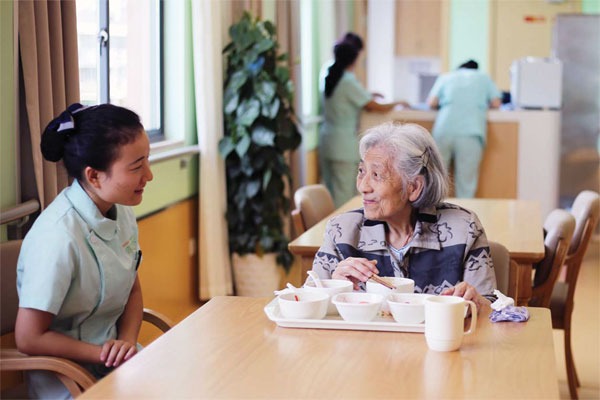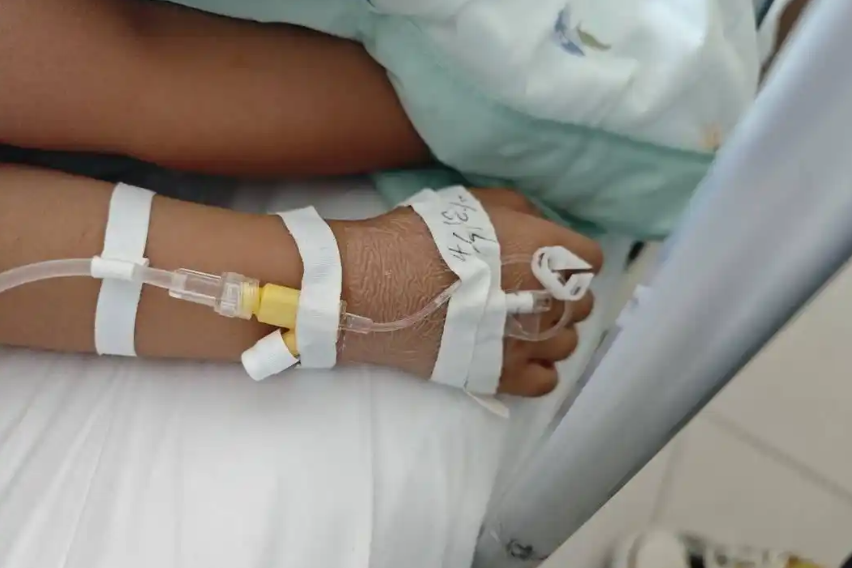Chinese Hospitals Introduce New Nursing Aide Service

China has initiated a pilot program in hospitals located in regions with significant aging populations, offering patients the option to utilize hospital-employed nurses and related workers for continuous care, rather than relying on family members or private caregivers. This initiative aims to alleviate the burden on relatives, who traditionally provide care for hospitalized patients with difficulties in daily activities, often leading to their fatigue and stress. It also addresses issues related to self-hired caregivers, who can be expensive or lack adequate training.
The program, announced by the National Health Commission, is a response to China's rapidly aging demographic and the increasing need for round-the-clock care. Public, tertiary hospitals in provincial capitals and major cities experiencing accelerated aging trends are prioritized for implementation. The initial rollout will focus on wards with high demand for care, such as geriatrics, neurology, cardiovascular medicine, and general surgery.
Running until June 2027, the program allows hospitalized patients to opt for "no-accompany care services." Under this model, daily life care tasks are performed by nursing aides hired directly by the hospitals, thereby freeing family members from these responsibilities. These aides will assist patients with partial or complete loss of self-care ability and those with limited mobility. Their duties include meal assistance (hand washing, feeding, cleanup), hygiene care, and bathing, all conducted under the guidance of medical staff. They are also tasked with monitoring patients' eating habits and promptly reporting any issues like swallowing difficulties, nausea, or vomiting to medical personnel.
The National Health Commission has emphasized that nursing aides are not to perform specialized medical or nursing tasks, nor should they replace the duties of licensed medical professionals. Local health authorities will be responsible for training these aides to enhance their professional expertise, communication skills, and understanding of quality and safety protocols, including infection control. Pilot hospitals are mandated to provide necessary occupational health protection supplies for the aides and monitor their health conditions. Furthermore, hospitals are expected to streamline logistical processes, such as the delivery of specimens, drugs, and meals, to support the aides' work effectively.
The notice also encourages the use of "advanced information technologies such as smart bedside call systems and data collection tools" to improve workflow and service efficiency. Additionally, inpatient visitation policies are slated for upgrades to balance compassionate care with the need for a quiet and orderly hospital environment.
China's aging population is a significant factor driving this initiative. By the end of last year, approximately 310 million people in China were aged 60 or older, representing 22 percent of the total population. This figure is projected to surpass 400 million, or 30 percent of the population, by 2035. Prior to this national program, some regions had already undertaken similar regional trials. For instance, at Jiulongpo People's Hospital in Chongqing, the orthopedic ward, with 18 nurses managing 35 beds, introduced three nursing aides six months ago. This addition has significantly helped manage the workload, allowing professional nurses to concentrate more on their specialized nursing duties. He Bo, the head nurse of the ward, stated that nursing aides receive about six months of training in fundamental medical knowledge and caregiving techniques, with specialized instruction tailored to patient needs, such as proper positioning and safe transfer methods for orthopedic patients.
A personal account from Zhang Jun, a resident of Wuxi, Jiangsu province, illustrates the user experience. She hired a nursing aide at a pilot hospital for her 90-year-old mother who underwent orthopedic surgery, at a cost of 120 yuan ($16.70) per day. While Zhang appreciated the aide's careful attention to techniques like repositioning her mother, she still chose to personally accompany her mother most of the time, expressing a belief that genuine compassion might not be fully replaceable by a stranger.
You may also like...
Diddy's Legal Troubles & Racketeering Trial

Music mogul Sean 'Diddy' Combs was acquitted of sex trafficking and racketeering charges but convicted on transportation...
Thomas Partey Faces Rape & Sexual Assault Charges

Former Arsenal midfielder Thomas Partey has been formally charged with multiple counts of rape and sexual assault by UK ...
Nigeria Universities Changes Admission Policies

JAMB has clarified its admission policies, rectifying a student's status, reiterating the necessity of its Central Admis...
Ghana's Economic Reforms & Gold Sector Initiatives

Ghana is undertaking a comprehensive economic overhaul with President John Dramani Mahama's 24-Hour Economy and Accelera...
WAFCON 2024 African Women's Football Tournament

The 2024 Women's Africa Cup of Nations opened with thrilling matches, seeing Nigeria's Super Falcons secure a dominant 3...
Emergence & Dynamics of Nigeria's ADC Coalition

A new opposition coalition, led by the African Democratic Congress (ADC), is emerging to challenge President Bola Ahmed ...
Demise of Olubadan of Ibadanland
Oba Owolabi Olakulehin, the 43rd Olubadan of Ibadanland, has died at 90, concluding a life of distinguished service in t...
Death of Nigerian Goalkeeping Legend Peter Rufai

Nigerian football mourns the death of legendary Super Eagles goalkeeper Peter Rufai, who passed away at 61. Known as 'Do...




